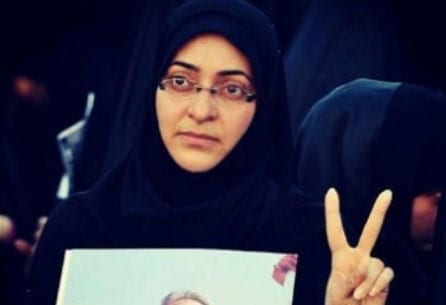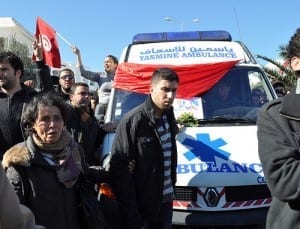Feb 20, 2013
Three months after at least 112 workers died in the Tazreen Fashions factory fire, dangerous and deadly working conditions are commonplace for the nearly 2 million Bangladeshi garment workers, who have little recourse than to take jobs that may kill them.
Despite international outrage and local promises to improve workplace safety, at least 37 fire and fire-related incidents have occurred in Bangladeshi garment factories since the Nov. 24 Tazreen tragedy, according to data compiled by Solidarity Center staff in Bangladesh. Nine more people have lost their lives at work and more than 650 garment workers have been injured. The Solidarity Center in the capital, Dhaka, has received reports that underage workers were injured at one factory fire incident.
February 20, World Day of Social Justice, highlights the necessity of promoting decent work, gender equity and access to social well-being and justice for all. Despite a global outcry about workplace safety following the Tazreen fire, where flames engulfed a multistory building lacking in fire escapes and exits, Bangladesh has averaged three fire incidents a week. Bangladeshi garment workers—extremely poor and vulnerable and primarily women—risk their lives every day on the job, often too fearful to complain about substandard conditions and possible dangers.
Bangladesh is now the world’s second-largest clothes exporter with overseas garment sales topping $19 billion last year, or 80 percent of total national exports. Yet the base pay for a garment worker in Bangladesh is the equivalent of $37 a month—the same monthly amount it costs to buy food for one person and the definition of “extreme poverty.”
The Solidarity Center, which for years has been supporting workers’ rights in Bangladesh— including providing fire safety training—is working with partners to hold accountable the Bangladeshi government, which is bound by law to protect its citizens.
Crucially, workers must be empowered and protected—legally and physically—to demand accountability and review their government’s performance in enforcing laws. Bangladesh has laws that, on paper, protect workers, guarantee their right to freely speak and associate and mandate fire escapes. It must enforce these laws. Bangladesh’s workers are best-positioned to improve health and safety conditions. They are in the factory every day. They know which exits are locked, how hazardous materials are stored and when illegal building additions are being constructed above their heads.
Yet, when garment workers in Bangladesh have sought to improve their working conditions, they are harassed, attacked and, in the case of union organizer Aminul Islam, murdered.
“If the government and buyers are serious about addressing deadly working conditions, workers must be able to assert their rights, organize unions with their co-workers, raise safety concerns and demand better working conditions according to their best judgment,” said Tim Ryan, Solidarity Center Asia director.
Feb 15, 2013

Dominican unionists and Haitian workers seek justice for unpaid coconut plant workers. Credit: Geoff Herzog
The National Confederation of Labor Unity (CNUS) and its member unions and federations called on the Dominican Republic government to respect the human and labor rights of Haitian migrant workers in the country and to put an end to human trafficking.
In a press conference this week, a dozen Dominican unionists accompanied representatives of the 84 Haitian coconut peelers who were fired last fall from Kilometer 5 Coconut Farm after seeking to form a union. After firing the workers, the plant owner closed the facility and cannot be located.
One of the workers, Francisco Ojilou, asked the Dominican government to assist in locating the owner, who left the plantation without paying wages for the last two weeks in September. The workers also say the owner, Rafael Emilio Alonzo Luna, did not pay them severance, which, for some workers, would cover 13 years of employment.
“We back the struggle of migrant workers affiliated with the union of coconut peelers of the Kilometer 5 of San Cristobal to demand payment of the salaries left unpaid by the company,” Mariza Vargas said at the press conference in Santo Domingo, the nation’s capital. Vargas is finance secretary of the National Federation of Workers in Free Trade Zones, Diverse Industries and Services (FEDOTRAZONAS).
Documents provided to the Ministry of Labor and the Solidarity Center by an attorney representing the fired men show that the workers signed for the days they worked—and for which they were not paid. The documents also listed the daily pay rate—which the workers say they never received.
Said Vargas: “Their employer made money from their labor for 13 years in poor conditions. These workers say they were brought illegally, some as children, to work in inhumane conditions and no one has done anything to carry out a real investigation and bring Alonzo Luna to justice.”
A Labor Court hearing is scheduled for March 21 in San Cristobal on the severance pay issue. The workers filed the case after the Ministry of Labor failed act, according to the unionists. “On January 4, we submitted the complaint on trafficking. Nothing has been done, and we are outraged,” said attorney Carlos Manuel Sanchez Diaz. He urged the government to ensure the workers receive their unpaid wages and to take steps to halt human trafficking across the nation’s border.
Globally, human trafficking is a $32 billion industry involving 161 countries. While many people are aware of sex trafficking, human trafficking that involves forced labor is far more prevalent. The Solidarity Center has worked to combat human trafficking in the Dominican Republic since 2007.

Feb 14, 2013
Tens of thousands of Bahrainis are in the streets today, the second anniversary of the uprising in Bahrain, to protest the government’s lack of progress in moving toward a more democratic political process. But any Bahraini student who is absent from class will be expelled, and any teacher who does not show up for work will be fired, according to Jalila Al-Salman, a founder of the Bahraini Teachers’ Society.
Speaking yesterday in Washington, D.C., at a forum on the crisis in Bahrain, Al-Salman described the government’s wide-scale attacks on teachers, their organizations and the students who have sought to exercise their fundamental human rights. Al-Salman, acting president of the Bahraini Teachers’ Society, was released from prison Nov. 25. She was arrested three times for exercising her right to freedom of assembly, for demanding reforms in Bahrain’s educational system and for protesting the killing and suppression of protesters, many of whom were students. Mahdi Abu Dheeb, president of the Bahraini Teachers’ Association, is one of six teachers still incarcerated, as are nine students, Al-Salman said.
“We were targeted because we are unionists,” Al-Salman said. While in prison, she encountered 200 women who were tortured for taking part in the uprising “just because they were members of the union.” Al-Salman says she also was tortured in prison. She says she was denied access to her lawyer—meeting him for the first time as her trial began.
Thousands of public- and private-sector workers have been fired and hundreds of students have been suspended or expelled for their support of democratic change, says Al-Salman. The International Federation for Human Rights says that 80 people have been killed in Bahrain since demonstrations erupted Feb. 14, 2011. A wave of arrests and military trials that targeted hundreds of opposition leaders, union leaders, medical personnel and activists followed the government’s suppression of the uprising.
While most workers have been rehired after sustained international pressure, widespread employment discrimination against those who engaged in peaceful protest is forcing qualified workers, including teachers, to take employment in other fields. So-called volunteers have replaced some teachers and test results show that Bahrain’s once admired schools have become poor performers. Al-Salman said the government has placed informers in schools to report on those supporting more democratic freedom, further chilling the learning environment.
The Bahrain Independent Commission of Inquiry last year found that the authorities had grossly exaggerated, if not manufactured, many claims brought against thousands of ordinary people who had been caught up in the Feb. 2011 protests. But since the report was issued, “the situation in Bahrain is worse than ever before,” said Khalil Al-Marzooq. A panelist at yesterday’s event, Al-Marzooq is assistant secretary general for international and political affairs of the Al-Wefaq Political Society in Bahrain. Al-Wefaq is among groups that called for major rallies today in Bahrain.
Although the Bahrain government has agreed to a national dialogue to address the crisis, neither Al-Salman nor Al-Marzooq expressed optimism about its outcome. Holding political prisoners is not a good sign that the government is serious about dialogue, said Al-Salman.
“Key figures who are in jail should be at the table” in the negotiations.
Another bad sign: A webcast of the panel, “The Crisis in Bahrain: Is a Negotiated Solution Possible?” sponsored by the National Endowment for Democracy, was blocked in Bahrain after panelists began speaking.
Feb 8, 2013

Tunisians accompany the ambulance carrying Belaid’s body. Credit: Sarah Mersch
The Tunisian Labor Federation (Union Générale Tunisienne du Travail, UGTT) is holding a general strike today in response to the murder Wednesday of a popular political leader. Chokri Belaid, a respected human rights lawyer and leader of the Democratic Patriots party, a major partner of the opposition Popular Front, was shot dead by two unidentified gunmen as he left home on his way to work.
Thousands of Tunisians across the country have been taking to the streets to denounce this crime and an escalation of violence. Prime Minister Hamadi Jebali has called for the government to dissolve, a movenot entirely supported by his ruling Ennahda party.
In an emergency meeting following Belaid’s murder, the UGTT administrative council, the union’s highest body, called for a general strike in condemnation of the assassination. The strike will coincide with Belaid’s funeral, which is expected to draw tens of thousands of mourners.
A video posted on YouTube shows people calling openly for Belaid’s death. Opposition politicians in Tunisia report receiving death threats in recent days.The UGTT has been the target of violent attacks in recent months, including the June firebombings of trade union offices around the country. Since calling for a general strike, the UGTT General Secretary Hassine Abassi also has received a death threat.
The UGTT was recently honored by the AFL-CIO and received the George Meany–Lane Kirkland Human Rights Award for its key role in supporting and sustaining the Tunisia’s democratic revolution which, in January 2011, sparked what has become known as the Arab Spring.
Feb 6, 2013

Valentin Urusov was detained prior to the start of a rally he was organizing. Credit: CSID
Trade unionist Valentin Urusov is proof that in Russia, it’s still possible to be imprisoned in the 21st century equivalent of the gulag for standing up for worker rights on the job. An electrical fitter at an ore-processing mill owned by the diamond mining company Alrosa, Urusov has spent more than four years of a six-year term in a penal colony in Yakutia in far northern Russia.
Described by friends as an intelligent and persuasive leader, Urusov in June 2008 formed the Profsvoboda trade union, affiliated with the Russian Metalworkers Trade Union. Profsvoboda sought to represent workers at the Udachny Pipe Diamond Mine, where workers toil in brutal cold in an open diamond pit just outside the Arctic circle.
Days after the union was founded, workers in one of the mine’s vehicle depots, dissatisfied with low pay and working conditions, announced a hunger strike. Alrosa refused to meet with them and instead unleashed a crackdown against trade union activists. When workers responded by preparing for a large-scale protest rally, Urusov was detained on suspicion of narcotics possession. The company’s deputy director for economic security was “coincidentally” present when the drugs were allegedly found on Urusov, enabling the deputy director to serve as an official witness, which is required under Russian law during police searches.
According to the Russian Confederation of Labor (KTR), which for years has engaged the international labor community in pressing for Urusov’s release, Urusov told his lawyer that the men who arrested him threatened to kill him if he refused to sign a document stating he possessed the drugs. They took him to the woods, and shots were fired near his head. He was beaten with batons and told he should get ready to die. Further, they demanded that Urusov confess that his union deputy had given the packet to him, but Urusov refused to give false testimony against his co-worker. After Urusov’s conviction, a higher court set aside the verdict, finding that there were serious procedural errors in the handling of his case and referred the case back for retrial. But in a retrial, the lower court did not change the verdict. In 2011, Urusov applied for parole and was denied. Urusov, who suffers from chronic kidney disease, remains in prison.
With Urusov behind bars, the KTR says Alrosa continued its campaign to destroy the union. Management representatives threatened union supporters and even those who had applied to join the union. By March 2009, the company fired the last 13 union activists. They appealed their dismissal in court, but lost. Those dismissed failed to find jobs because all enterprises in the city are linked to the Alrosa company.
The KTR filed Urusov’s case with the International Labor Organization (ILO) which in November issued a report requesting the Russian government indicate whether the allegation of anti-union persecution had been investigated. If not, the ILO recommended the government conduct an independent investigation. Russia’s Presidential Council for Civil Society and Human Rights in January sent an appeal signed by journalists, human rights activists and other public figures to Russian President Vladimir Putin urging the government follow the ILO recommendations. A recent Human Rights Watch report harshly criticized Russia’s use of laws to restrict civil society.
Russian trade union activists face many types of workplace harassment, sackings and beatings by company thugs. But this is the first time in recent years, trade union activity has been “punished” with a lengthy jail sentence.




